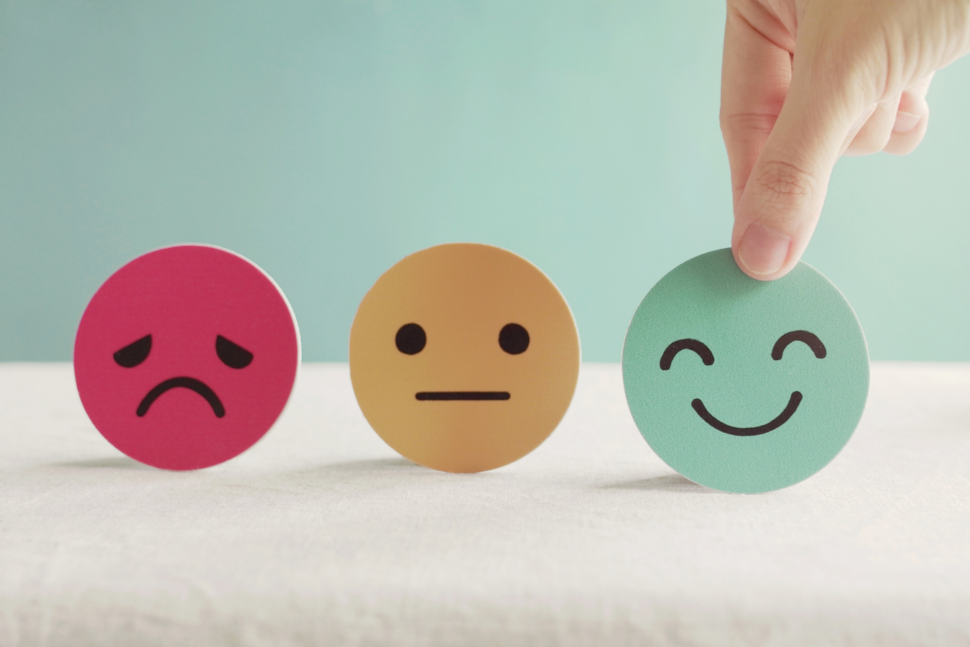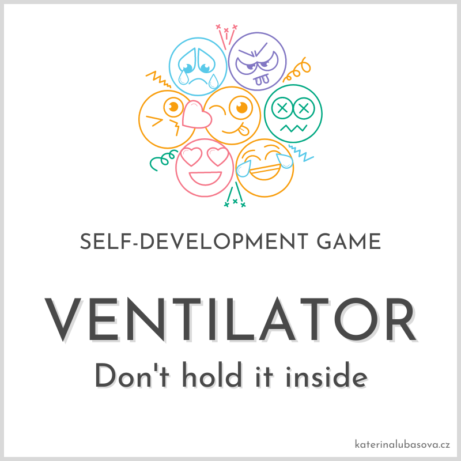BLOG
Indulge time for yourself and get inspired...
What are emotions, and how to work with them

Emotions are an integral part of each of us, they come in many different forms, sometimes they help us and sometimes they can feel like they are destroying us. If we don't consciously work with our emotions, they can actually become a burden to us, even when they don't need to be. I've put together a practical exercise to help you understand your emotions better, so that you can feel better not only about yourself, but also about those around you.
What are emotions
The word "emotion" means "to shake strongly" and people define the content of this word differently. Emotions have fascinated mankind for several centuries and their exploration is attributed to Aristotle. In general, emotions can be described as psychological and social processes of subjective experience, whether positive or negative. They are accompanied by physiological changes and motor manifestations. What is important about emotions is that they are purely subjective, i.e., one and the same event can be experienced differently and in different intensities by everyone. However, all experiences, though different, are equally important and relevant.
Furthermore, emotions tend to be very spontaneous and changeable. They can arise and disappear quickly and manifest themselves without cause. According to their intensity and duration, they can be distinguished into three basic types. Specifically, these are moods, affects and passions. Moods tend to be weaker in intensity, but last longer and tend to be stable. Affects tend to be more intense and short-lived, strong and turbulent. Passions are deep, very intense emotions that last for a long time.
What uncontrolled emotions lead to
As previously mentioned, emotions also show up on the body. And if we do not pay attention to them, they can even result in psychosomatic problems. So at that moment not only our inner (spiritual) part suffers, but also our physical body.
However, the physical discomfort is not the end of the situation. Unmanaged emotions affect our life in general. They negatively affect our relationships, family atmosphere, work performance, etc.
How emotions help us
However, emotions also bring with them a number of positive influences. Joyful emotions fill us with feelings of happiness, motivate us to be active and achieve our goals, and are also very important for our relationships with those around us. Positive emotions increase our psychological resilience and help us to feel content in life.
Certainly it cannot be said that the more positive emotions one has, the better off one is. On the contrary, negative emotions also play a role and their perception is extremely important for our lives.
As the authors of Psychology.cz point out, "A reasonable level of positive emotions increases creativity, while too high a level has the opposite effect. In addition, people with an extremely high ratio of positive to negative emotions (e.g. 5:1 or more) tend to behave rigidly. Moreover, when experiencing very high rates of positive emotions, some individuals are more prone to risky behavior such as excessive alcohol consumption, overeating, or drug use. The ability to see the negative is a competitive advantage in terms of survival and allows us to spot danger creeping towards us through the flowering meadow. When positive emotions are high, we tend to underestimate the risks and overlook the dangers. So being overly happy is not always an advantage."
How to work with emotions
In order to live a happy and fulfilled life, emotions need to be perceived holistically. There are a number of techniques for this purpose. We will now try one such practical exercise. I'll give you a tip for a game that will make working with emotions a lot easier. And you'll also learn at the end what coaching can do for you in working with emotions.
Practical exercises to build the habit of perceiving emotions
Practice the habit 3 times a day at the same time (at first you can put a reminder on your phone, but build the habit so that you gradually don't need the reminder).
Stop, close your eyes and take a few deep breaths in and out, and observe your breathing for a while.
Answer the following questions and write down your answers.
(I don't recommend saying them out loud, if you don't have pencil and paper with you, either say them out loud or write them mentally with your finger in front of you or on the table, you can also express your answers by drawing/doodling, or you can alternate between writing and drawing.)
1.What's on your mind?
Answer....................
2.How are you feeling right now? (If you don't know, draw the feeling.)
Answer....................
3.Where do you concentrate those feelings on your body?
(This may be a little hard at first, but give it a chance, just feel the first part of your body that comes to mind.)
Answer....................
4.Close your eyes and give those sensations on your body your attention for as long as you need.
(It can be a few seconds, but feel free to give it a few minutes.)
5.What is important to you right now?
Answer....................
6.Where are you right now?
Answer....................
7.Who is with you now?
Answer....................
8.What is going on around you?
Answer....................
9.What sounds do you hear?
Answer....................
Tip for a game
I know it may not be easy to focus on your emotions, especially if you are just starting out. That's why I've prepared a game version of the cards called Ventilator, Don't hold it inside. These will guide you through emotions in a playful way and help you to both vent pent up emotions and calm down and enjoy the present moment.
Coaching interview
Another way to tap into your emotions is through coaching. Coaching is a very effective tool for developing human potential. Among other things, through it you can discover your own methods for working with your emotions. At the same time, in the coaching session itself, you are constantly connecting your thoughts with your feelings.
After a couple of coaching sessions, trainer and therapist Veronika Sequens says: "...She encourages you to validate what you are saying also through how you are feeling at the same time, and so non-violently guides you to be whole in working on yourself - to be not only "in your head" but also in your body, confronted with your feelings and what the changes you are planning will bring about - how will you feel when you achieve what you desire?...read more"
If the topic of emotions intrigues you and you would like to explore it further, please contact me. I'd be happy to discuss with you the possibilities that coaching offers.
All information provided in the article is based only on my own experience and the experience of my clients. I am not a doctor and my texts are not intended to replace medical care in any way. If you are an expert in this topic, please contact me. I would like to know more and pass this information on to my readers.



